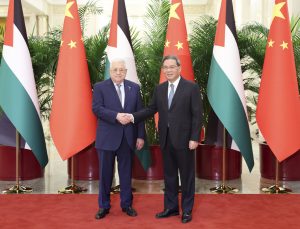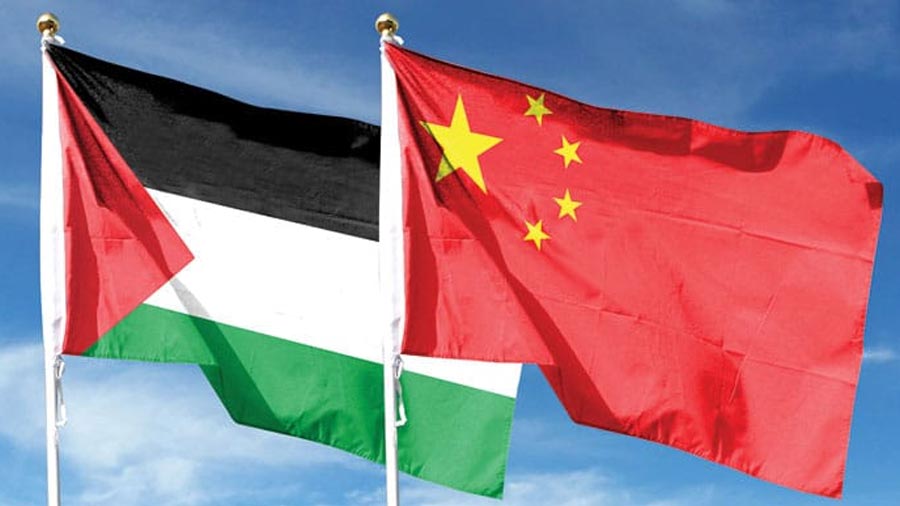China's Diplomatic Triumph in Palestinian Reconciliation
By Muhammad Asif Noor
China’s recent accomplishment in facilitating a reconciliation agreement between Palestinian organizations Hamas and Fatah signifies a remarkable milestone in its expanding position as a global peace mediator. The Beijing Declaration on Ending Division and Strengthening Palestinian National Unity, signed and agreed following three days of intensive negotiations in Beijing, demonstrates China’s approach towards diplomacy and use of its diplomatic influence and soft power to impact global peace initiatives. This accomplishment represents more than just a diplomatic success for China; it also has the potential to significantly alter the dynamics of the Middle East, a region characterized by enduring conflicts and political instability.
China’s participation in mediating this accord highlights its dedication to establishing itself as a reliable global leader capable of promoting peace and stability. China’s historical approach to international affairs has been marked by non-interference and adherence to sovereignty, earning it a reputation as a neutral entity in disputes. China’s impartiality, together with its significant economic influence and increasing political power, has helped it to effectively mediate in conflicts where other countries, especially the United States, may be seen as increasingly unreliable and prejudiced.
The reconciliation negotiations in Beijing involved high-ranking delegates from 14 Palestinian factions, including Hamas and Fatah, being the first instance of these factions gathering in such a context. The agreement stipulates the creation of a temporary national unity administration that will be responsible for governing Gaza after the war. It also confirms the Palestine Liberation Organization (PLO) as the only legitimate representative of the Palestinian people. This development is significant due to the longstanding hostility between Hamas and Fatah, which has frequently damaged Palestinian solidarity and impeded peace initiatives.
The capacity of China to unite different factions in a complex Middle East landscape reflects its strategic use of diplomacy and its skillful management of intricate political dynamics. The Beijing Declaration surpasses other endeavors for Palestinian reconciliation by delineating precise measures towards establishing a consensual government, consolidating Palestinian institutions, and making arrangements for general elections. This comprehensive strategy tackles the fundamental problems that have hindered previous attempts at reconciliation and establishes a more practical framework for establishing long-term togetherness.
The wider implications of this accord for the Middle East are substantial. The establishment of a consolidated Palestinian alliance has the potential to facilitate more cohesive and efficient discussions with Israel and other global actors involved in the negotiations. Furthermore, it enhances the Palestinian stance in their pursuit of global backing for the establishment of a sovereign state and assistance for humanitarian purposes, which is vital for the rebuilding of Gaza. Moreover, this progress has the potential to stabilize the region by mitigating internal Palestinian disputes, which frequently escalate into wider regional hostilities.

Historically, China has adopted a stance of careful involvement in the Middle East, with a primary emphasis on economic ties and ensuring the security of energy resources. Nevertheless, its recent diplomatic endeavors, such as facilitating the Saudi-Iranian reconciliation and mediating the peace in Middle East, demonstrate a more assertive approach in regional politics. China seeks to bolster its influence in the Middle East, an area of utmost importance to its Belt and Road Initiative and wider geopolitical aspirations, by assuming the role of a mediator for peace.
This aggressive diplomatic strategy is in line with China’s overarching foreign policy objectives of advancing a multipolar global order and diminishing reliance on institutions and alliances led by Western powers. China’s efforts to promote peace and stability in the Middle East serve to safeguard its economic interests and establish its image as a responsible global leader that actively engages in resolving international crises through diplomatic discussions and collaboration.
The arrangement between Hamas and Fatah is unusual because it has the potential to establish a more cohesive and efficient Palestinian government that can effectively tackle both internal and foreign obstacles. Past efforts to reconcile have frequently failed as a result of mutual suspicion and outside influences, particularly from Israel and the United States. Nevertheless, China’s participation brings forward a fresh element, providing an impartial forum for discussion and utilizing its increasing power to promote adherence and execution of the accord.
China’s effective facilitation of the Palestinian reconciliation accord highlights its expanding position as a worldwide peace mediator and its strategic utilization of diplomacy to strengthen its influence in the Middle East. The Beijing Declaration signifies a momentous advancement towards Palestinian cohesion, with the capacity to stabilize the region and fortify the Palestinian stance in forthcoming discussions. China’s growing influence in global affairs is reflecting an alternative option for the world to explore the possibilities of peace and reconciliation to foster a more inclusive and just peace at the global landscape.
*The writer is Founder of Friends of BRI Forum, Senior Advisor to Pakistan Research Centre at Hebei Normal University in China, Co-Founder of the Alliance of China-Pakistan Research Centres, and Senior Fellow at the Centre for CPEC Studies at Kashi University in China.

